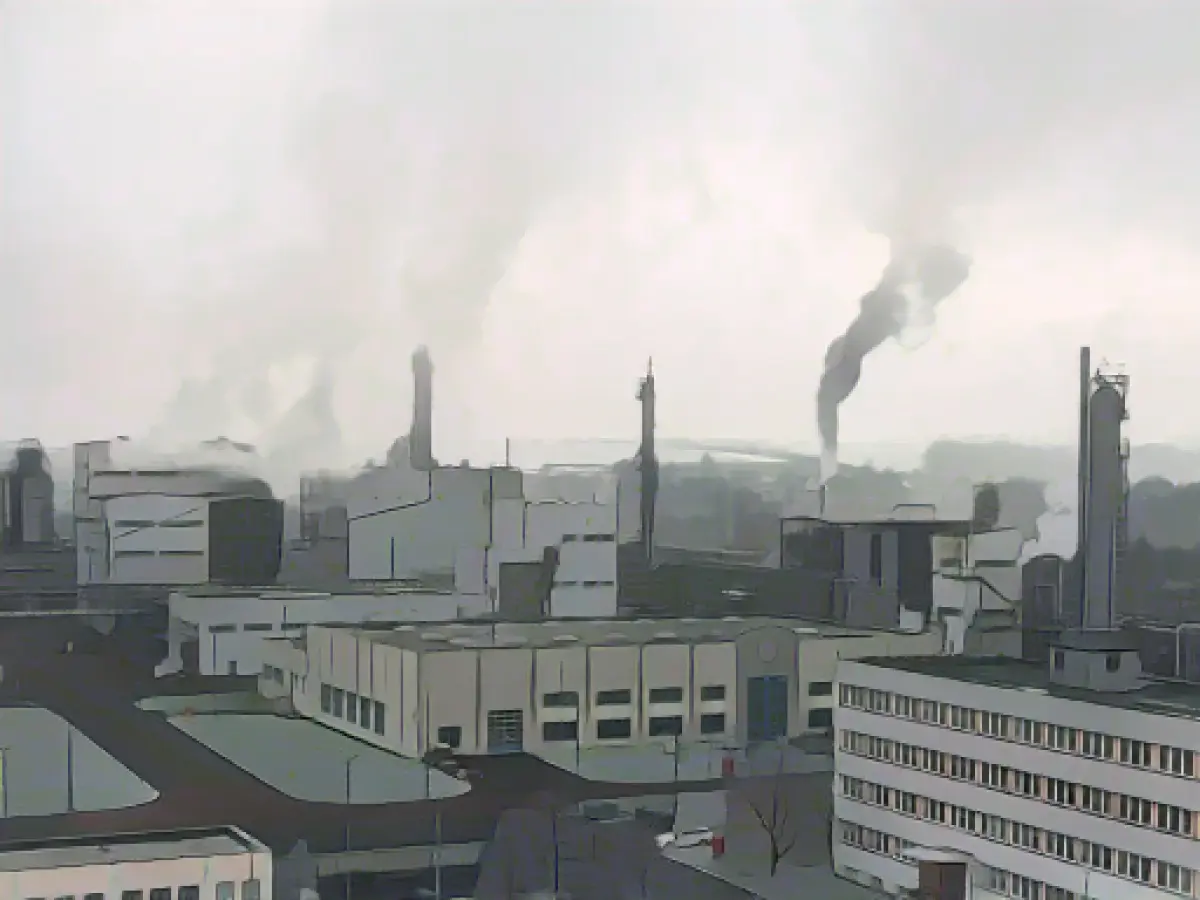Chemical production stabilizes - "Bottom reached"
The ailing German chemical industry has halted its downward slide in production in the third quarter. For the first time in six quarters, the chemical and pharmaceutical industry recorded a slight increase in production of 0.1 percent compared to the previous quarter, the German Chemical Industry Association (VCI) announced in Frankfurt on Tuesday. Excluding the pharmaceutical business, there was even growth of 1.7 percent. Compared to the same period last year, however, production was still down by 6.1 percent. "The bottom seems to have been reached," explained the VCI. Incoming orders are also stabilizing. However, this is not yet a turnaround, it said.
"The German chemical industry is treading water and hopes of an improvement by the end of the year are fading," explained VCI President Markus Steilemann. "High energy and raw material prices and the lack of orders will continue to weigh on business." Companies in the sector are therefore being forced to cut costs.
Industry is an indicator for the entire economy
With around 477,000 employees in Germany, the chemical and pharmaceutical industry is a supplier to the automotive, consumer goods and construction sectors, for example, and is therefore dependent on the economy. Conversely, the industry's business is an indicator for the economy as a whole. The energy-intensive chemical industry in particular has experienced difficult times due to the economic downturn and increased energy prices in the wake of the war in Ukraine. Industry leader BASF, for example, announced thousands of job cuts and the closure of energy-intensive plants at its main site in Ludwigshafen.
The German government's electricity price package will not be enough to raise the international competitiveness of companies to a new level, criticized Steilemann. In recent months, the VCI had vehemently advocated a broad state-subsidized industrial electricity price for energy-intensive companies, as called for by Federal Economics Minister Robert Habeck (Greens).
Billions in relief planned
Instead, the German government recently agreed on a reduced electricity price for industry, which will also benefit SMEs. Plans include a significant reduction in electricity tax for 2024 and 2025 for the manufacturing industry and an expansion of electricity price compensation for companies that are particularly affected by high electricity prices. Next year alone, there is to be relief of up to twelve billion euros.
Meanwhile, turnover in the chemical and pharmaceutical industry in the third quarter was 13.8 percent below the previous year's level. Prices fell by 5.5 percent. For the current year as a whole, the VCI continues to expect a decline in production of 8 percent. With prices falling, industry turnover is expected to drop by 14%. Business is also likely to remain difficult in winter, according to the association. "The companies are now hoping for an improvement in the coming year."
The slight increase in production in the chemical and pharmaceutical industry, despite the continuing challenges, is a testament to the resilience of these sectors. Moreover, the continued growth in pharmaceutical production, even in the face of overall production decline, showcases the importance of pharmaceuticals in the industry's overall performance.
Source: www.dpa.com








